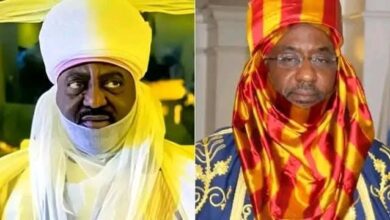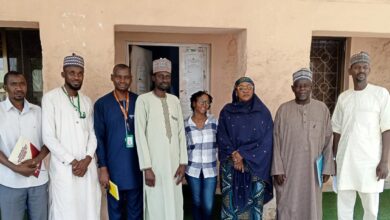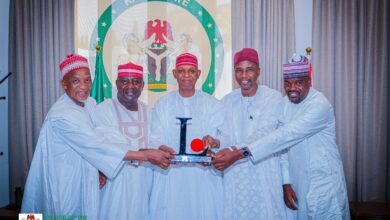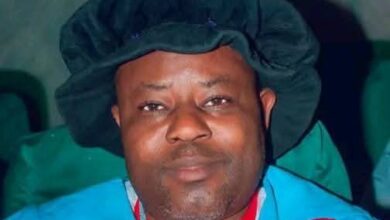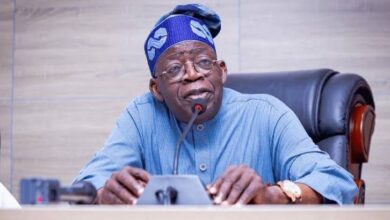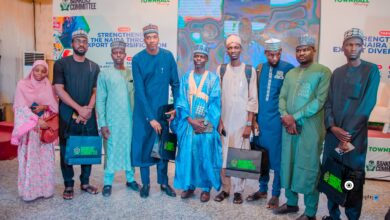Ex-Kano Rep Hafiz Kawu: Social Media Must Be Used to Build, Not Destroy, Political Trust

In an interview with Kano Times, Hafiz Kawu, former Member of the House of Representatives for Tarauni Federal Constituency, shares insights on the purpose and impact of the recently organized Media Summit, aimed at promoting responsible social media usage in political discourse.
Kano Times: Hon. Hafiz Kawu, you recently organized a two-day Media Summit in collaboration with the Council of Ulama, Kano State. What was the driving force behind this event?
Hafiz Kawu: All thanks be to the Almighty, the Creator of all things. The idea for this summit arose after observing the impact of social media on political engagement. Social media was meant to foster quick and effective communication, but instead, it has been used by politicians to defame, spread hate speech, and even incite violence. These behaviors contradict our religious teachings, and I felt the need to address this by organizing the summit. We wanted to reshape public perceptions and promote political discussions that are respectful and inclusive, particularly among individuals with diverse political leanings.
Kano Times: It sounds like this was a multi-faceted initiative. Could you elaborate on the key objectives of the summit?
Hafiz Kawu: Absolutely. The summit aimed to educate the public on the responsible use of social media, particularly in the political arena. We wanted to highlight the damage caused by defamatory content, hate speech, and violence, all of which are contrary to our religious and moral beliefs. Bringing together politicians from various parties, legal experts, and media scholars like Prof. Abdallah Uba Adamu helped us explore the real purpose of social media and how it should be used for positive engagement. This event served as a platform to promote peaceful coexistence between political rivals and to remind people that politics should never undermine our shared humanity.
Kano Times: Given the current climate, what kind of reception did you receive from the public after the summit?
Hafiz Kawu: The response has been overwhelmingly positive. Many people reached out to congratulate us, expressing how much they appreciated this novel approach. Some even wished they had been part of the summit. The feedback has been incredible—people from all political affiliations came together to discuss the future of social media usage, and it was heartening to see that politicians, religious leaders, and media professionals could sit together and engage in such meaningful dialogue. It’s clear that this summit has started a conversation that many felt was long overdue.
Kano Times: The participation of prominent figures like Sheikh Ibrahim Khalil and Prof. Abdallah Uba Adamu was crucial to the event. How did their involvement contribute to the success of the summit?
Hafiz Kawu: Their contributions were invaluable. Sheikh Ibrahim Khalil, as a respected Islamic scholar, helped contextualize the religious perspective on the consequences of social media misuse. Prof. Abdallah Uba Adamu, with his expertise in media and communication, provided an academic foundation for understanding the role of social media in our society. These respected figures not only brought credibility but also helped shape the discourse in a way that was both informative and impactful. Their presence reassured attendees that the summit was grounded in knowledge and genuine concern for social development.
Kano Times: What lessons can other political leaders and social media users take from this initiative?
Hafiz Kawu: One of the key lessons is that we must engage in politics with respect and decency. While opposition is an essential part of democracy, it should be based on constructive criticism, not personal attacks or defamation. The summit showed that it’s possible to disagree without resorting to hate speech. For social media users, it’s important to understand the power they wield and the potential harm that careless words can cause. Moving forward, I hope more political leaders, especially at the grassroots level, will take inspiration from this event and replicate it in their own communities.
Kano Times: Looking ahead, what do you envision for the future of political practices in relation to social media?
Hafiz Kawu: Social media is here to stay, and its influence on political engagement will only grow. It’s vital that we learn to harness its power for good. If we don’t manage it responsibly, it could tear our society apart. But if we use it to educate, promote healthy debate, and foster peaceful coexistence, it will be a tool for progress. I believe that with continued efforts to sanitize the social media space, we can create an environment where politics is conducted with mutual respect, and where citizens are empowered to engage constructively with the government.
Kano Times: Finally, how can media organizations collaborate to ensure a cleaner, healthier social media environment?
Hafiz Kawu: I’m calling on all media organizations to join hands in this important mission. It’s a collective responsibility. The media has a critical role to play in shaping public opinion and promoting responsible communication. By working together, we can create awareness, educate the public, and provide the necessary tools for responsible social media use. It won’t be easy, but with consistent effort, we can make a significant difference in how social media is used in political discourse.
